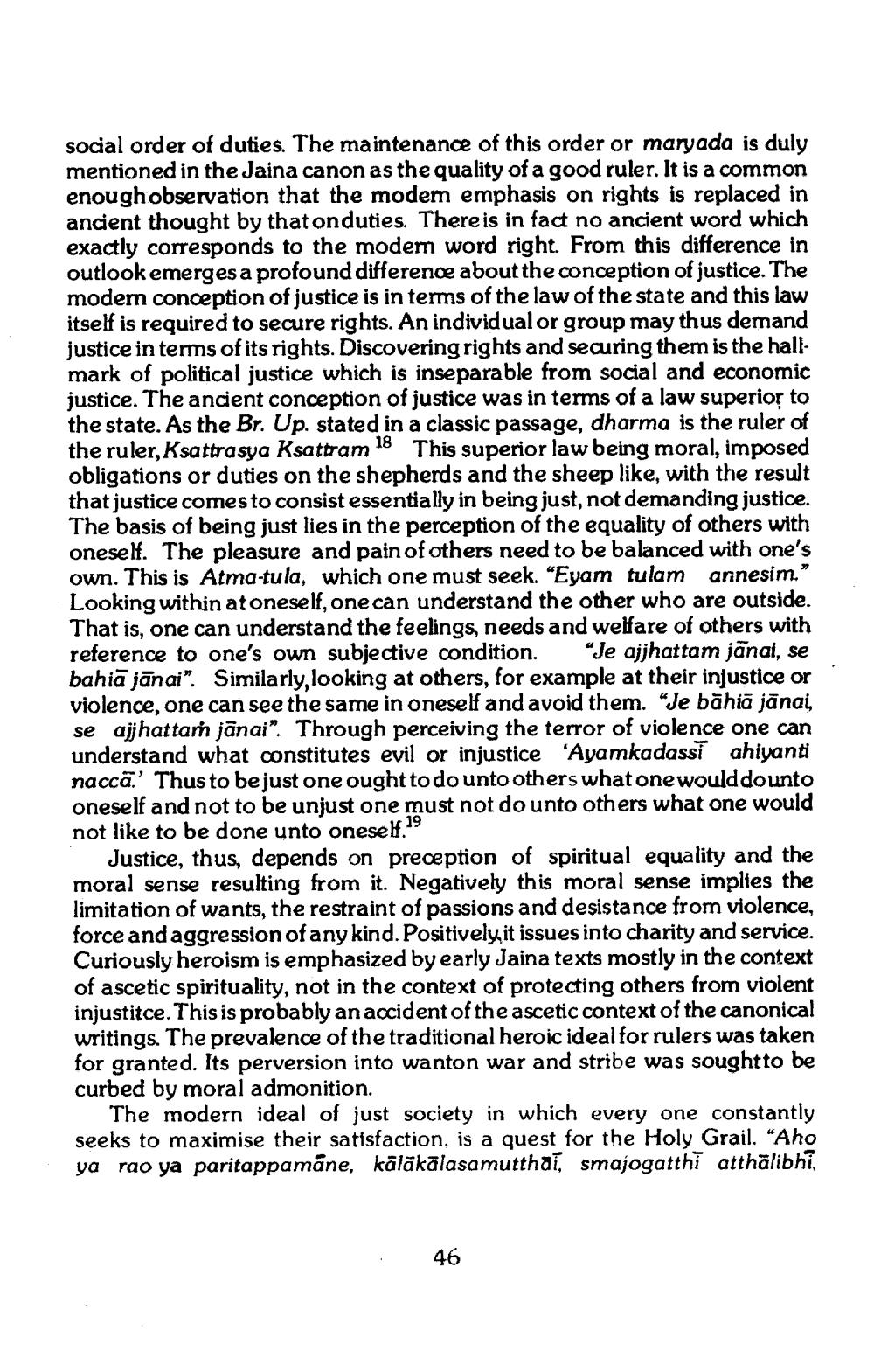________________
social order of duties. The maintenance of this order or maryada is duly mentioned in the Jaina canon as the quality of a good ruler. It is a common enough observation that the modem emphasis on rights is replaced in ancient thought by that on duties. There is in fact no ancient word which exactly corresponds to the modem word right. From this difference in outlook emerges a profound difference about the conception of justice. The modern conception of justice is in terms of the law of the state and this law itself is required to secure rights. An individual or group may thus demand justice in terms of its rights. Discovering rights and securing them is the hallmark of political justice which is inseparable from social and economic justice. The ancient conception of justice was in terms of a law superior to the state. As the Br. Up. stated in a classic passage, dharma is the ruler of the ruler, Ksattrasya Ksattram 18 This superior law being moral, imposed obligations or duties on the shepherds and the sheep like, with the result that justice comes to consist essentially in being just, not demanding justice. The basis of being just lies in the perception of the equality of others with oneself. The pleasure and pain of others need to be balanced with one's own. This is Atma-tula, which one must seek. "Eyam tulam annesim." Looking within atoneself, one can understand the other who are outside. That is, one can understand the feelings, needs and welfare of others with reference to one's own subjective condition. “Je ajjhattam jānai, se bahiā jānai". Similarly, looking at others, for example at their injustice or violence, one can see the same in oneself and avoid them. "Je bāhiā jānai, se ajj hattar jānai". Through perceiving the terror of violence one can understand what constitutes evil or injustice 'Ayamkadassi ahiyanti naccā.' Thus to be just one ought to do unto others what one would dounto oneself and not to be unjust one must not do unto others what one would not like to be done unto oneself."
Justice, thus, depends on preception of spiritual equality and the moral sense resulting from it. Negatively this moral sense implies the limitation of wants, the restraint of passions and desistance from violence, force and aggression of any kind. Positively it issues into charity and service. Curiously heroism is emphasized by early Jaina texts mostly in the context of ascetic spirituality, not in the context of protecting others from violent injustitce. This is probably an accident of the ascetic context of the canonical writings. The prevalence of the traditional heroic ideal for rulers was taken for granted. Its perversion into wanton war and stribe was sought to be curbed by moral admonition.
The modern ideal of just society in which every one constantly seeks to maximise their satisfaction, is a quest for the Holy Grail. "Aho ya rao ya paritappamāne, kālākālasamutthaí smajoqatthi atthälibhi.
.
46




